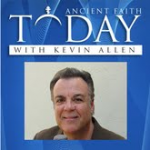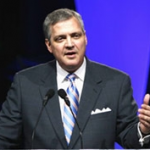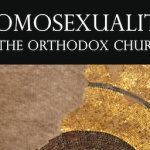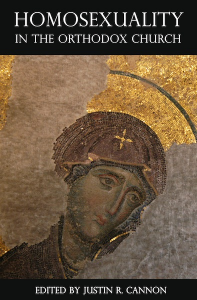
Deprecated: trim(): Passing null to parameter #1 ($string) of type string is deprecated in /home/aoiusa/public_html/wp-content/plugins/sexybookmarks/public.php on line 388
Deprecated: trim(): Passing null to parameter #1 ($string) of type string is deprecated in /home/aoiusa/public_html/wp-content/plugins/sexybookmarks/public.php on line 394
Deprecated: trim(): Passing null to parameter #1 ($string) of type string is deprecated in /home/aoiusa/public_html/wp-content/plugins/sexybookmarks/public.php on line 400
 This past Sunday (May 20, 2012), Ancient Faith Today interviewed Dr. Philip Mamalakis and Andrew Williams who specialize in counseling people with same-sex attraction. It was hands down one of the most illuminating and informed presentations I have heard on this complex and often contentious topic in quite a while.
This past Sunday (May 20, 2012), Ancient Faith Today interviewed Dr. Philip Mamalakis and Andrew Williams who specialize in counseling people with same-sex attraction. It was hands down one of the most illuminating and informed presentations I have heard on this complex and often contentious topic in quite a while.
Without going into particulars (you can listen to the interview below), their grounding in Orthodox anthropology enabled them to avoid the common misconception that the object of a person’s sexual desire forms what I call a “foundational characteristic of personhood.” In practical terms this means that we error when we see a person first and foremost as either “straight” or “gay” believing that “sexual orientation” sums up much of who and what he is.
This way of understanding the human person is taken at face value in the larger culture, but in Orthodox self-understanding it misses the mark completely. We are not to conform our understanding of the human person to whether he prefers men or women because we don’t define a person in terms of his sexual desire. Desires are malleable, they require self-discipline and self-mastery (this is what fasting is about for example). And the knowledge that directs this path of mastery can only be uncovered if there is a deeper understanding of the purpose, meaning, and destiny of the human person.
This deeper understanding has been lost in the larger culture — including in some quarters of the Church — although not by the two presenters in Sunday’s program. They framed same-sex desire in the larger context of the inherent value of the human person and his created destiny to become a son of God (male and female alike). As such we heard no condemnatory language that you might hear from moral rigorists who correctly see homosexual behavior as sin but lack the insight about how the struggle with same-sex desire might actually be a means of transformation, or the moral relativism of those who believe that if something feels good it must be right.
The idea that desire defines personhood also gives rise to the notion that ‘orientation’ is a fixed and objective category of human ontology. In English this means that the thinking — the orientation or outlook that results by acting on desire — is itself the source of the desire. The orientation is understood to be something fixed and unchangeable, similar to say, hair color or race.
Yet, all passions (desires) affect an orientation, especially the inordinate ones. A person addicted to food will have an inner orientation geared toward the acquisition and consumption of more food, the alcoholic to alcohol, a person motivated by anger to anger, and so forth. In sexual terms this is true of the heterosexual as well. A man who fails to master lust will have an inner orientation towards, say, fornication and so forth. His self-understanding is no different from the homosexual activist.
Sexual relationships are properly expressed only in the context of marriage between one man and one woman in order to create a family and continue the human race. The sexual revolution that began in the 1960s overthrew this common wisdom. It created the condom/contraception culture that divorced sexual activity from procreation. The idea that the two parent family was crucial for interpersonal and thus cultural stability was undermined, and sexual activity outside of marriage was seen as a natural and positive good.
Homosexual activism then is a predictable outcome of heterosexual irresponsibility. Anytime sexual activity is divorced from procreation, any notion that the family — the union of one male and one female — is the proper social context for sexual relations erodes along with it. And where sexual desire is elevated as a primary constituent of self-identity, then marriage becomes little more than a legal framework in which sexual desire is actualized. ‘Gay marriage’ seems like a reasonable arrangement under these conditions.
Further, it is not true that the heterosexual model is an ‘orientation’ even though heterosexual desire can be misused. Heterosexual relationships, when properly understood and expressed as one man and one woman joining to create a family, lie within the order of creation, within nature. Put another way, same-sex unions are naturally sterile (not the same thing as infertile). They are biologically closed to the creation of new life. Nature itself rejects the premise that same-sex unions correspond in any meaningful way to the heterosexual family.
These ideas are self-evidently true even though many people have an increasingly difficult time seeing it. The cultural shift in the West is anthropological first, and only political second. Unfortunately this is also true in the Church where some activists work to bring this impoverished view of the human person into Orthodox thinking and praxis. They are not enemies necessarily but they are deeply confused, and their confusion should not be allowed to stand under the rubric of fairness, compassion, or any other appeal calculated to create moral parity.
The person authentically struggling with same-sex desire will learn to bring that struggle to Christ in ways that allow for a deeper transformation into Christ. If the ideas about homosexual orientation prevalent in the larger culture are imported in the Church however, then that struggle will either be truncated or abandoned altogether because of the false anthropology that it posits.
We are more than our desires. The activist seeking to create a moral parity between homosexuality and heterosexuality seeks the dominance of homosexual behavior in the end, and either has a poor understanding of the human person or deliberately set out to change the core anthropological teachings of the Church. Aberration replaces truth when this occurs, and the image of Him into Whom we are to be transformed is distorted.
Listen to the interview on Ancient Faith Today here:



